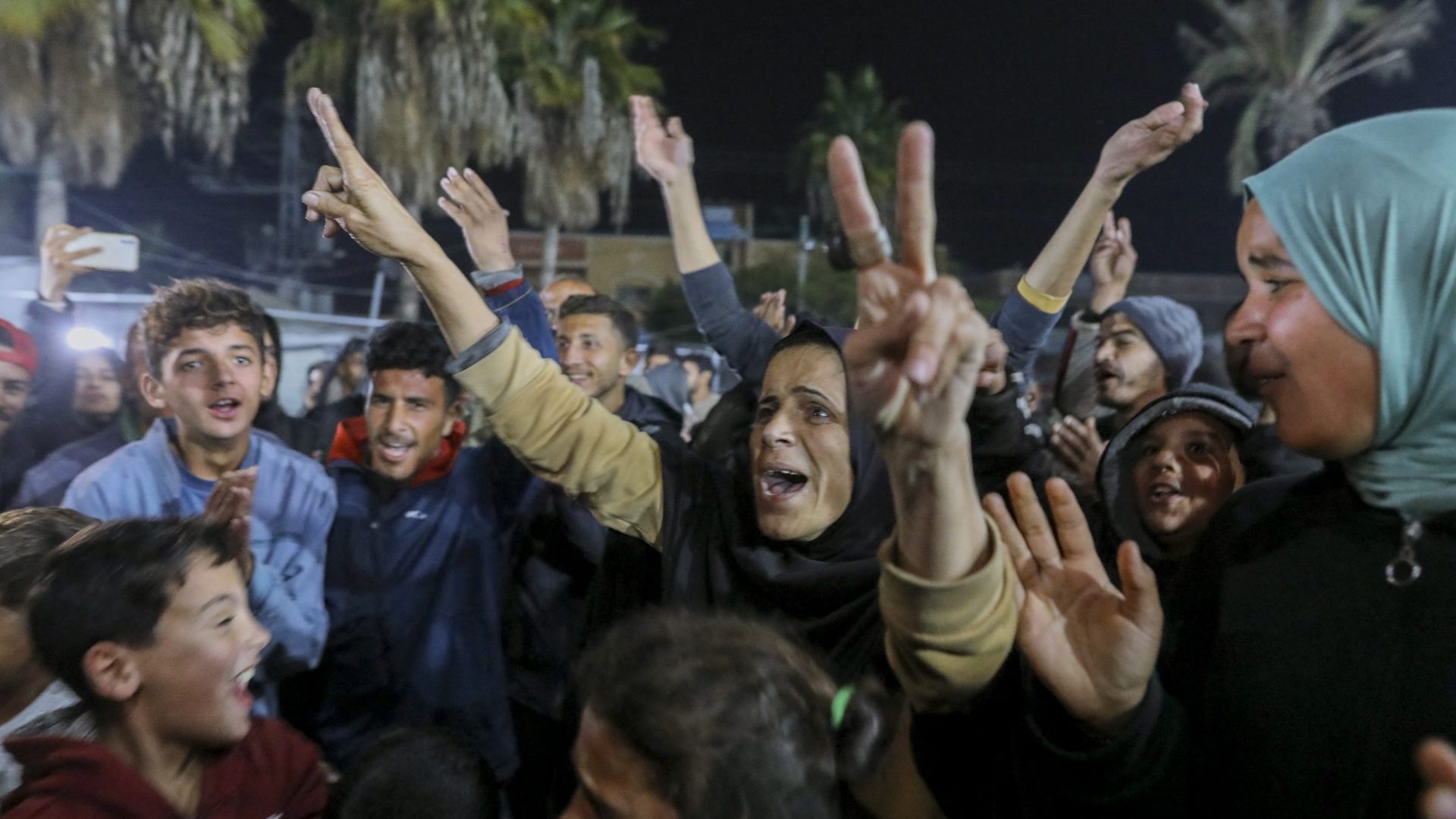I lived through a ceasefire in Gaza, in 2014, so I understand the outburst of joy that took place on its shattered streets in the hours after this one was announced. The sheer relief at being alive, after 15 months of callous, reckless and unlawful Israeli attacks must be overwhelming.
But those who chanted about “victory”, those who chanted the names of the killed Hamas leaders Yahya Sinwar and Mohammed Deif were, I am afraid, deluding themselves – as were those who echoed them, from Casablanca to Aleppo.
The war Hamas began on October 7, 2023 is the most catastrophic event for Palestinians since their expulsion from Israeli territory in 1948. Israel has defeated Hamas and all its allies.
Even now, though it allows for the return of Israeli hostages and freedom for hundreds of Palestinian prisoners, the ceasefire agreement contains no design for a lasting peace.
Though Western leaders have called for “reconstruction”, Israel is not interested in that task; nor is it interested in what diplomats call “stabilisation”: the intricate task of finding allies in Gazan civil society who will distribute the aid, police the streets and re-create a functioning civil society.
If you think the agony is over, wait until you see what reconstruction looks like without these things.
The strategic fact for the Palestinian people is that their adversary is immensely strengthened, and their allies defeated. Hezbollah has been pulverised into submission; its supply route via Syria is gone, together with the Assad regime.
All over the region Iranian power is in retreat – and Iran itself will be lucky if Trump and Netanyahu do not cook up reasons to attack its nuclear facilities.
For all these reasons, even though Hamas has survived, and is said to be recruiting fast among the survivors, the victory rhetoric is a delusion. As for the two-state solution: sure, it remains possible – but for now only on terms dictated by Trump and Netanyahu.
As we survey the wreckage, and as the true scale of civilian death and suffering is calculated, we must also weigh the geopolitical damage.
This ceasefire has been on the table since at least last May. That it took so long to sign was due to American weakness and the scale of diplomatic autonomy Israel has achieved through the use of force.
There has been much opprobium thrown at the Biden regime for its failure to restrain Israel. But once Biden made himself a political lame duck, Netanyahu always had the upper hand. Any serious attempt to coerce Israel into peace – through witholding weapons or money – could have been turned into an electorally devastating argument by Israel’s allies in Washington DC.
As for our own governments – Tory and Labour in succession: with zero influence in Tel Aviv they were reduced to trying to cajole Biden into stronger action, and to extricating themselves from culpability over their own arms supplies to Israel.
Labour has, rightly, maintained support for UNWRA, banned some arms exports to Israel, removed obstacles to the ICC indictment of Netanyahu and pledged to respect the arrest warrant issued against him. But under neither party has the British state been able to project power independently into the situation.
That Israel was able to prolong the war until it could inflict strategic defeat on its enemies was, in short, a symptom of American weakness. Biden may be the physical personification of that weakness, but history will judge his irresolution – both over Gaza and Ukraine – as a symptom of something more systemic.
Why did Hamas believe that, by murdering thousands of Israelis, it could provoke a regional war that could achieve victory “from the river to the sea”? For the same reason Netanyahu now believes he can create a security zone around Israel in which Gaza is a depopulated wasteland.
The root cause is American weakness and the inability of its geopolitical challengers – Russia and China – to project hard power in its stead.
This, in short, is the multipolar world in action. When you hear pro-Beijing voices from the global south lobby trumpeting the end of Western power, it’s worth reminding them that Gaza is multipolarity’s proof of concept.
Israeli war crimes will go unpunished; the term “genocide” – legally created by a united world after 1945 – will become a political football in an irrevocably divided world. The work of journalists who revealed the Israeli targeting algorithms permitting large-scale civilian casualties will, rightly, win awards: but the users of the algorithms will go unpunished.
It will not matter what crimes the ICC or ICJ indict the Israeli leadership for: the writ of the international justice system is running shallowly in the world right now. Multipolarity, in short, breeds chaos.
What can Britain do? Actually we have a geopolitical doctrine, set out in the “Integrated Review Refresh” of 2023, and it’s worth dusting off. It says: since the rules-based order is fragmenting, our aim is to create islands of order amid the chaos, not out of altruism but self-interest.
We owe it to the Palestinian people to attempt, with allies, to make Gaza one such island. Since Israel is not interested in the stabilisation phase that must follow any modern conflict, an alliance of willing states should take on that task and Britain should be prepared to lead it. On top of that we should be ardent proponents of a new peace process that can lead to a recognised Palestinian state.
A final mention should go the students who have been parading around campuses shouting “Intifada until total victory!” In case it is not obvious: Hamas just signed a deal with Israel that precludes that outcome; there will be no intifada and no total victory.
Wars create facts, and that is the fact October 7 created. Those who celebrated or excused it, from the comfort of the college quadrangle, should be asked to take a long, hard look at the outcome.




